The best BBQ Delivery Boxes in the UK from small sustainable British Farms
Is there such a thing as sustainable tuna?
“Yes,” insists founder of Fish4Ever, Charles Redfern, perhaps unsurprisingly.
But, to his credit, he was researching sustainable tuna fishing methods even before the big Greenpeace campaign in the early noughties.
You won’t find the “Dolphin-friendly” label or the MSC blue tick on a Fish4Ever tin, even though Fish4Ever tuna is as close to by-catch free as possible.
“Many brands use the dolphin-friendly logo but we looked into it and realised it was a bit of a sham,” explains Redfern.
Fish4ever was the first tinned fish company to sign up to The Marine Stewardship Council (MSC). It was also the only brand to have the courage to leave when it became clear the MSC was pushing a contested version of sustainability.
“People within the commercial world of fish slag the MSC off in private whilst pledging their loyalty in public, which would almost be funny if it wasn’t so destructive.”
Redfern describes his years fighting MSC’s greenwashing as “futile”. But, the fact that he played an early role in calling out a multi-million pound organisation that helps to prop up a multi-billion pound global fishing industry, rather than profit from the game, speaks volumes about his integrity.
“It’s a little known fact that anyone using the MSC label is contractually sworn to uphold the reputation of the MSC as part of the logo licensing agreement,” says Redfern. “This leads to the people within the commercial world of fish slagging the MSC off in private whilst pledging their loyalty in public, which would almost be funny if it wasn’t so destructive.”
So, what drives someone to make business decisions that genuinely put purpose ahead of profits? What keeps him motivated when unsustainable brands are clearing up, quite literally, the ocean floor? And what, exactly, is a tin of sustainable tuna?
We find out…
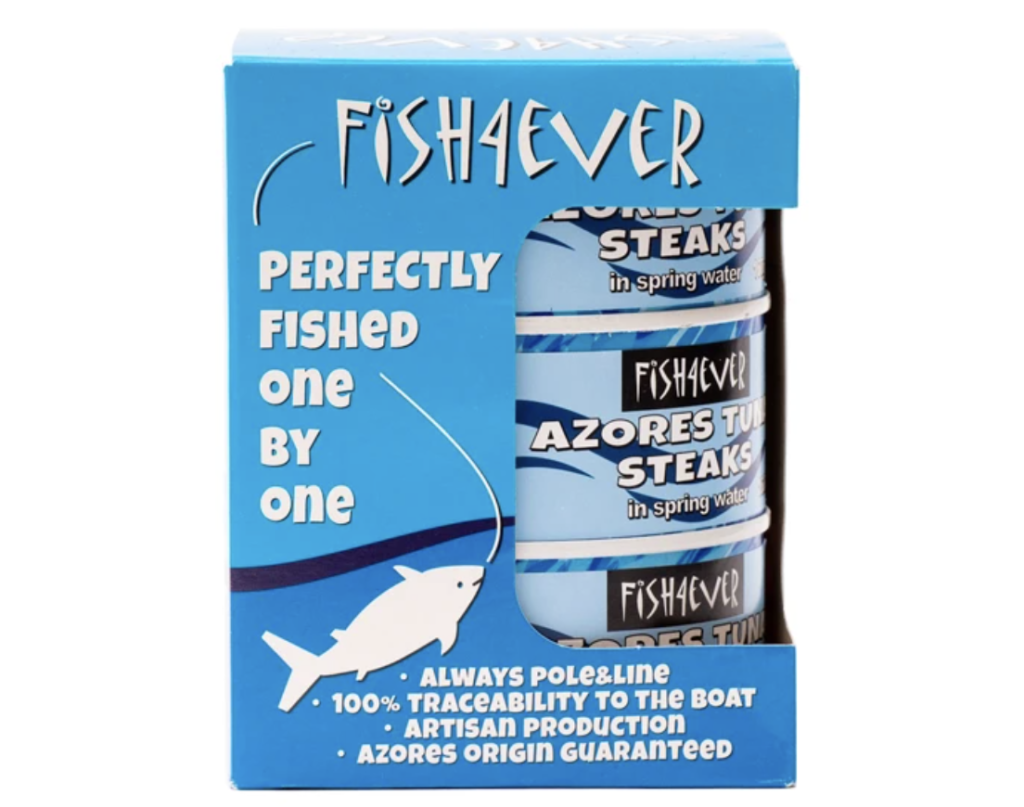
How did you start on your ethical journey?
I’ve always loved food and am half-French, so as a child I spent my summers in Paris and the French Alps – buying milk in tin cans from the farmer down the road or eggs from old ladies dressed in black sitting outside their village houses and special round cheeses straight from little slate-roofed chalets.
We did a lot of foraging for mushrooms, berries and plants. My uncles and grandparents all had ‘potagers’ (kitchen gardens), so we had a lot of fresh produce and picnics in the mountains where cheap dessert wine would be stuck in the June snows to be consumed at the end of the meal… it’s really no surprise I ended up working in food.
So, Organico is our cupboard staples brand and Fish4Ever brings the organic ethos to fish.
Organic was a logical place to be: it’s about valuing food and the land. It’s not just farming, it’s love. The people that pioneer organic see food very much in the way the slow food movement does – as a whole culture, a rite and a way of being. This, to me, has always been very impressive.
The passion you see from a good organic farmer – improving biodiversity, active in the community and producing incredibly good products – that passion is contagious. It’s a virtuous circle.
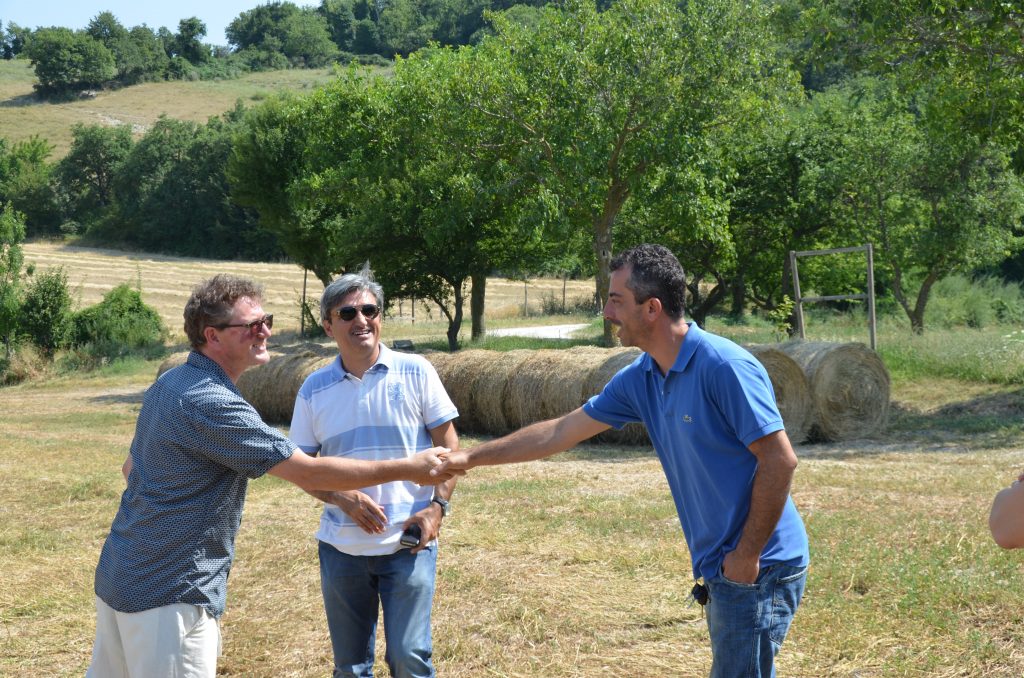
With many years experience of the food industry, let’s take the long view. In your experience, how has the food industry evolved over the past 20 years?
In some ways, I don’t think we’ve moved that much over the last 20 years in terms of organic and sustainable thinking. The UK, right now, is dangerously backward minded – it feels almost as if the “o” word [organic] is a dirty word to the UK government and big business.
I think part of the problem is that we seem to move in trends: this year vegan, last year clean-eating. I don’t understand why we do that rather than build on generations of learnings and knowledge.
Having said that, there are some brilliant and dedicated people tirelessly building a sustainable movement. As such, organic as a marketplace is growing steadily year-on-year in the UK. And change is picking up pace, globally. In the EU, organic is a central plank of the next phase of their agricultural policy and it has huge political buy-in. In the US, the home of GM, there is loads going on – brilliant organic markets, thought-leading films, urban garden initiatives. Vibrant organic scenes are even developing in China and India.
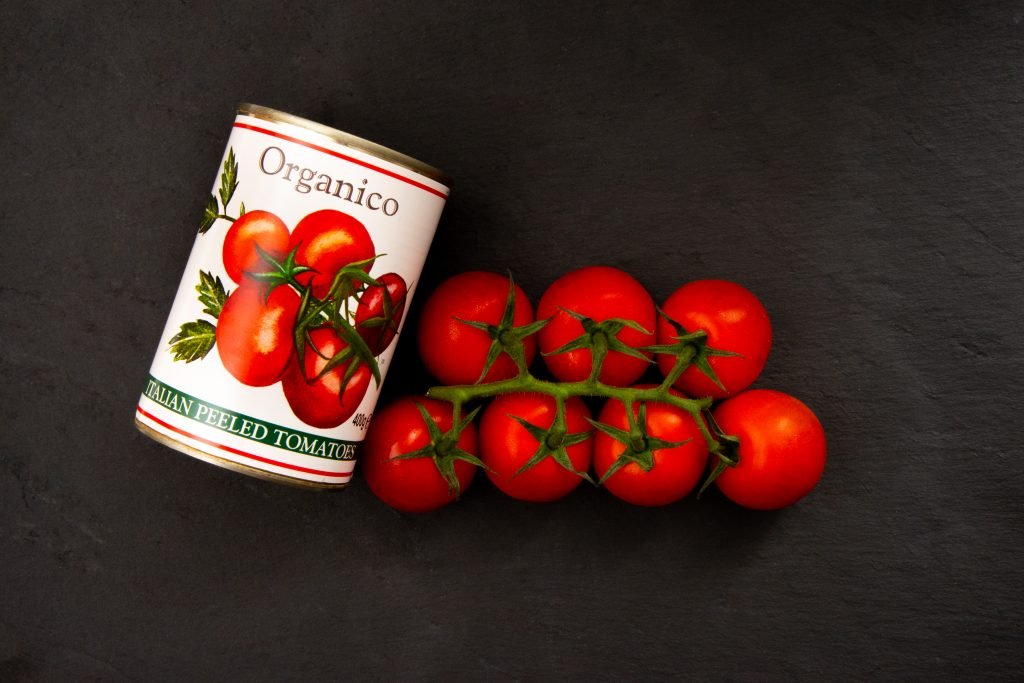
One of the biggest barriers to organic is cost. Why is organic food more expensive?
One of the issues organic has is that it’s answering a multiplicity of issues: it’s about biodiversity, animal welfare, soil building, water health. This is as well as farming as naturally as possible and avoiding pesticides. Plus, you also want to be employing well and paying fairly. All of this costs money. The benefits of organic are about the whole ecosystem. That’s not a straightforward marketing campaign!
Let’s be clear, price is always as important but, for us, it’s never our main question – we look for the whole story.
And let’s flip that question – why is non-organic food so cheap?
Non-organic food is so cheap because of subsidies and a lack of true cost accounting. In farming, we don’t consider the loss of insects in intensive agriculture, for example. How do you put a price on a 40% decrease in biodiversity? Or soil degradation? Or rivers, estuaries and coast lines polluted by intensive farming?
When it comes to fishing, there’s loads of issues with labour abuse, illegal fishing, and literal slavery in boats. Plus, the government pays around 90% of seafood subsidies to industrial fishing in one form or another. Even fuel is subsidised. That’s mad. Plenty of studies have proven that many industrial fisheries would not be viable businesses without subsidy.
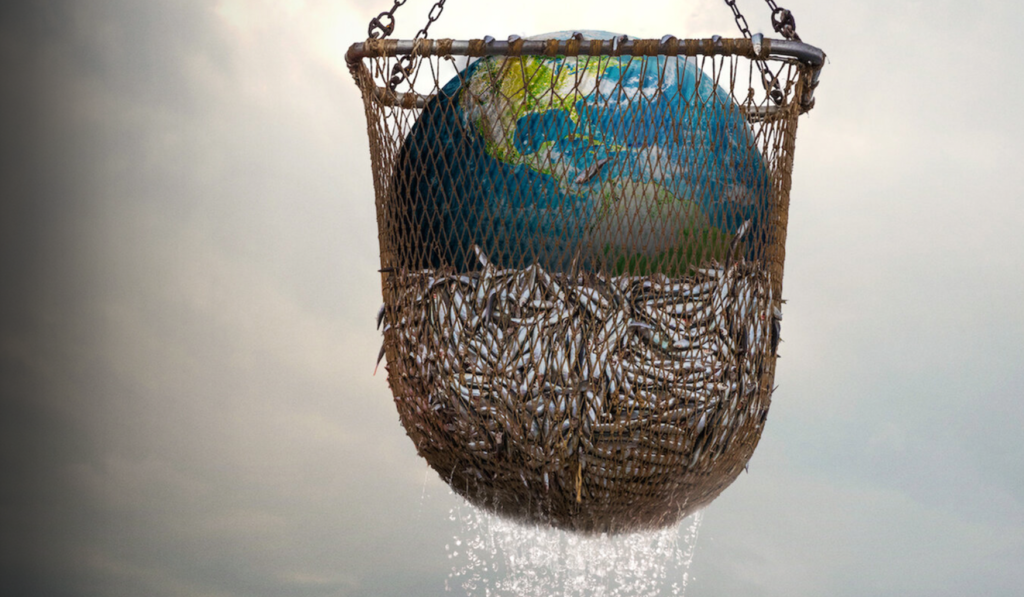
We probably source some of the world’s most expensive sustainable tuna, from The Azores in Portugal. In the Maldives we work with a Fairtrade certified fishery. This means there’s value for everyone in the supply chain, and of course it costs a lot more to do it that way, but it’s a fair price when you take everything into account.
A big challenge with Fish4Ever is that we’re competing with other brands who do ‘sustainability’ cheap and so the very term “sustainable” is of course contested.
Tesco, for example, have promised to sell 100% MSC certified tuna by 2025. But, that’s going to be tuna from the large industrial purse seine nets that fish enormous quantities of tuna and are associated with all sorts of problems – by-catch, illegal fishing, slave labour. These are all problems that independent NGOs and experts have said exist in MSC fisheries. So, what does Tesco moving to MSC mean, in reality?
Is Tesco also promising to be 100% organic by 2025? No, of course they’re not. Organic is an authentic, properly hard, rigorous standard. So, in the UK, there’s been a lot of energy and money spent dismissing it as a ‘lifestyle’ choice.
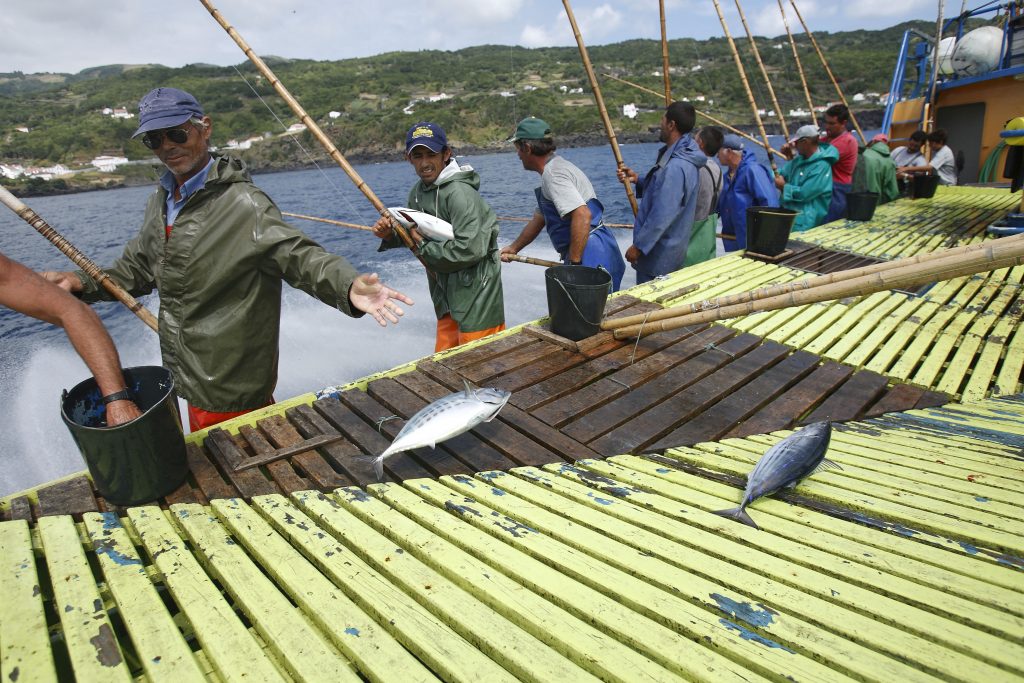
As a consumer, does it really matter what we buy? Does buying sustainable tuna make a difference?
There’s multiple layers to that answer. To put it bluntly, the first is: Not at all. You don’t change the world with what you buy. It’s a drop in the ocean and it really doesn’t matter.
But, then you need to consider what does change the world, and that’s politics and good regulation. We need good representations of change and consumer support for this. Good companies would not survive if it wasn’t for good consumers.
So, the conclusion I reach is that, overall, it is important to buy better. But people shouldn’t beat themselves up over this; we all buy ‘bad’ sometimes.
Let’s talk about what ‘buying better’ involves. Is buying local always the best option?
I believe buying good products is better than simply buying local products.
We’ve just done the footprint of all our products and the transport is negligible. It’s a common mistake to think of imports as having a high carbon footprint – the biggest part of footprint is not the transport to the UK (unless you’re flying stuff in, which isn’t that common). The biggest part of the transport carbon for most food products is the consumer going to the shop.
There are some products that make less sense to import and export – such as butter, cheese and meat products. There are some products that are better made elsewhere, such as pasta, because it’s made from a special wheat, or tomatoes.
I’m an internationalist and believe we should support best practice everywhere. I often think the forces lined up against sustainable practice are global, so those of us working for a better food movement need to support each other across borders. I draw a lot of strength from seeing great projects and great examples or initiatives elsewhere.
Plus, in the end we want some of the joys of globalisation – where would England be without tea?
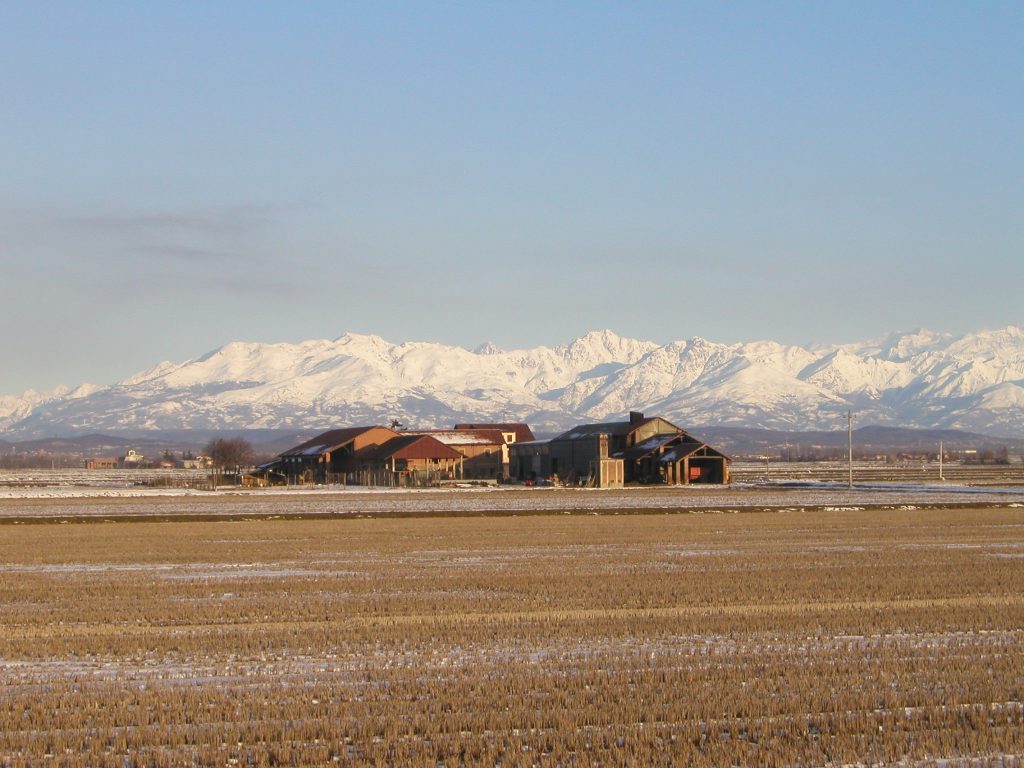
Do you have a soft spot for any particular suppliers?
Definitely. Our Skipjack tuna supplier, our pasta supplier and rice supplier. Oh, and our olives supplier. I like everything they’re doing for the environment and their approach to business.
Our pasta supplier in Umbria is all about slow food and social values. The farming there was still pretty much feudal in the 1960s, opportunities for the young were dwindling and the valley was emptying. Gino Girolomoni realised the challenge was in large-part cultural. He formed a co-op, bought and restored a monastery and over time they built a mill, factory, ecological B&B and a lovely restaurant. Now it’s now a thriving co-operative. To me, that’s a perfect supplier.
Sustainable tuna from the Azores is our main Fish4Ever product. The factory is vital for this very sparsely populated island. A lot of tuna factories in Europe buy chunks of fish already processed, cheaper from elsewhere, and simply put it in a can and label it. But, our factory has never done that, because it’s all about supporting the local fishing boats and the community.
What do you wish consumers knew?
There’s a world of difference between sustainable certifications such as organic and Fairtrade and MSC. For any land ingredient, from pasta to vegetables, the best thing to buy is the organic option and then you can choose between organic producers.
There isn’t a reputable standard for fish so you have to try to do the footwork yourself. The Marine Conservation Society (MCS) has good advice on species. On top of that I would say support local and artisan producers and ask questions about the methods used for different fish.
It’s about finding suppliers you can trust. I like to think both Organico and Fish4Ever are very open as brands, and we welcome questions. In the past, I’ve been known to write essays to customers in answer to complex questions, but I’m not sure they always appreciate that!
Written in collaboration with Charles Redfern of Organico and Fish4Ever; shop at organicorealfoods.com.


